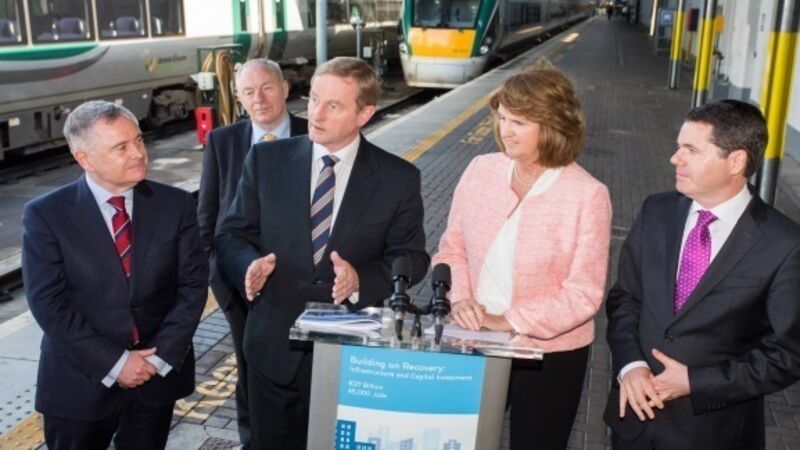Capital spending plan: Coalition’s €27bn capital plan labelled ‘auction politics’

However, the plan — which will become a cornerstone of the Fine Gael-Labour election campaign — was branded as “auction politics”.
With just months before the general election, Enda Kenny launched plans for a €2.4bn metro for Dublin, which will not carry its first passengers for over a decade.













